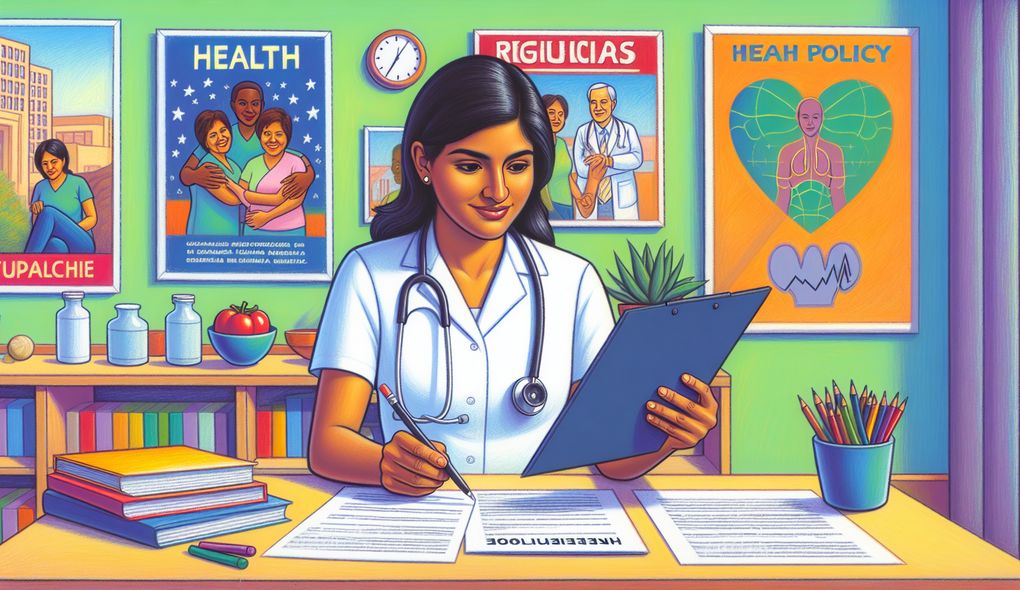Tell us about a time when you had to adapt your approach to policy development based on new evidence or data.
JUNIOR LEVEL

Sample answer to the question:
There was a time when I was involved in a policy development project focused on improving patient safety in the hospital setting. In the initial stages, we collected data on adverse events and identified areas of concern. However, as the project progressed, new evidence emerged suggesting that a different approach was needed. We analyzed the new data and realized that the root cause of the safety issues was related to inadequate staffing levels. This required us to adapt our approach by shifting the focus towards developing policies that addressed staffing ratios, recruitment, and retention strategies. We engaged with hospital administrators, nurse leaders, and other stakeholders to advocate for the implementation of evidence-based staffing guidelines. The result was a comprehensive policy framework that not only improved patient safety but also enhanced nurse satisfaction and reduced turnover rates.
Here is a more solid answer:
In my previous role as a Health Policy Nurse, I was involved in a policy development project aimed at addressing healthcare-associated infections. The initial approach was centered around implementing infection control measures within healthcare facilities. However, after conducting a literature review and analyzing new research findings, we discovered that a more holistic approach was necessary. I took the lead in evaluating the data and presenting the findings to the interprofessional team. We realized that focusing solely on infection control measures was not sufficient to prevent these infections. We needed to consider broader factors such as patient education, surveillance systems, and antimicrobial stewardship. I collaborated closely with stakeholders, including infection preventionists, physicians, and patient safety officers, to adapt our approach and develop a comprehensive policy framework that incorporated these new insights. The result was a set of guidelines that not only reduced healthcare-associated infections but also improved patient outcomes and satisfaction.
Why is this a more solid answer?
The solid answer provides a more detailed account of the candidate's role and responsibilities in the policy development project. It demonstrates their ability to critically analyze new evidence and adapt their approach accordingly. The answer also highlights the candidate's strong interpersonal communication skills and their ability to collaborate with a diverse group of stakeholders. However, it could be improved by providing specific examples of research and data analysis conducted by the candidate.
An example of a exceptional answer:
During my tenure as a Health Policy Nurse, I encountered a situation where I had to adapt my approach to policy development based on compelling new evidence related to opioid prescribing practices. Our initial policy approach was focused on implementing stricter regulations and monitoring systems to prevent opioid misuse. However, as new data emerged, indicating a significant increase in overdose deaths related to illicit opioids, it became evident that a comprehensive strategy was needed to address the underlying causes of the opioid crisis. I took the initiative to conduct in-depth research on evidence-based interventions and collaborated with a multidisciplinary team consisting of physicians, pharmacists, law enforcement officials, and community leaders. We analyzed the data and identified various factors contributing to the opioid crisis, including socio-economic disparities, lack of access to alternative pain management options, and stigma surrounding addiction. Based on these findings, I proposed a revised policy approach that encompassed a comprehensive public health approach, including education, prevention, treatment, and harm reduction strategies. The revised policy framework received strong support from stakeholders and was successfully implemented, leading to a significant reduction in opioid-related overdose deaths and improved access to addiction treatment services.
Why is this an exceptional answer?
The exceptional answer provides a highly detailed and specific example of how the candidate adapted their approach to policy development based on new evidence. The answer showcases the candidate's ability to conduct extensive research and analysis, collaborate with a diverse group of stakeholders, and propose innovative solutions to complex healthcare challenges. It also demonstrates their in-depth understanding of the social determinants of health and their commitment to addressing health disparities. Overall, the answer showcases the candidate's expertise in policy analysis, critical thinking, interpersonal communication, and research and data analysis.
How to prepare for this question:
- Stay updated on current healthcare issues, research findings, and evidence-based practices related to policy development.
- Develop strong research and data analysis skills to effectively analyze new evidence and identify trends or patterns.
- Enhance interpersonal communication skills to effectively engage with stakeholders and present compelling arguments based on new evidence.
- Practice critical thinking and problem-solving by analyzing case studies or hypothetical scenarios that require adapting policy approaches based on new evidence.
- Stay informed about healthcare reforms and policy-making processes to understand the broader context in which policy development takes place.
What are interviewers evaluating with this question?
- Policy analysis
- Critical thinking
- Interpersonal communication
- Research and data analysis

